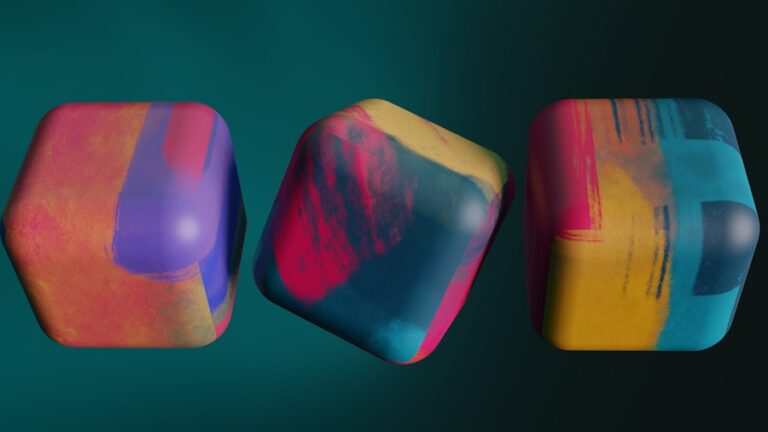5 Tips for Building a Successful Career in Digital Art
Education and training are essential components for anyone looking to succeed in any field, and the creative industry is no exception. Whether you are a graphic designer, photographer, writer, or artist, having a solid educational foundation and ongoing training is crucial for staying competitive and relevant in the ever-evolving creative landscape. Pursuing a degree in a relevant field such as graphic design, fine arts, or creative writing can provide you with the necessary skills and knowledge to excel in your chosen profession. Additionally, enrolling in specialized courses, workshops, and seminars can help you stay updated on the latest trends, techniques, and technologies in your field. Continuous learning through education and training not only enhances your skills but also demonstrates your commitment to professional growth and development.
Furthermore, seeking out mentorship and guidance from experienced professionals in your industry can provide invaluable insights and advice that can help shape your career trajectory. Whether through formal mentorship programs or informal networking opportunities, learning from those who have already achieved success in the creative industry can be a game-changer. By investing in your education and seeking out mentorship, you can position yourself for long-term success and growth in the competitive world of creativity.
Networking and Collaboration
In the creative industry, networking and collaboration are essential for building a strong professional support system and expanding your opportunities for growth and success. Building a network of like-minded individuals, industry professionals, and potential clients can open doors to new projects, collaborations, and career opportunities. Attending industry events, conferences, and meetups can provide valuable networking opportunities and allow you to connect with others who share your passion for creativity. Additionally, leveraging social media platforms such as LinkedIn, Instagram, and Behance can help you expand your professional network and showcase your work to a wider audience.
Collaborating with other creatives can also be a powerful way to expand your skills, gain exposure, and create innovative work. Whether through joint projects, co-creating content, or participating in creative collectives, collaborating with others can provide fresh perspectives and new ideas that can elevate your work to new heights. By actively seeking out networking opportunities and fostering collaborative relationships, you can position yourself for success in the competitive and dynamic world of creativity.
Portfolio Development
A strong portfolio is a cornerstone of success in the creative industry. Your portfolio is a visual representation of your skills, style, and creativity, and it serves as a powerful tool for showcasing your work to potential clients, employers, and collaborators. As such, investing time and effort into developing a compelling portfolio is crucial for establishing yourself as a professional in your field. Your portfolio should showcase a diverse range of work that highlights your strengths, skills, and unique style. Whether you are a graphic designer with a collection of branding projects, a photographer with a series of stunning images, or a writer with a portfolio of published articles, your work should be presented in a visually appealing and organized manner that effectively communicates your talent and expertise.
In addition to showcasing finished projects, including process work, sketches, and behind-the-scenes insights can provide valuable context and depth to your portfolio. Furthermore, regularly updating and curating your portfolio to reflect your latest work and achievements is essential for staying relevant and competitive in the creative industry. By investing in the development of a strong portfolio, you can effectively communicate your value as a creative professional and attract new opportunities for career growth and success.
Marketing and Self-Promotion
In the competitive world of creativity, effective marketing and self-promotion are essential for standing out and attracting attention to your work. Whether you are a freelance designer, artist, or writer, building a strong personal brand and promoting your work effectively can help you gain visibility and attract potential clients and collaborators. Leveraging social media platforms, creating a professional website or blog, and participating in industry events are all effective ways to market yourself and showcase your work to a wider audience. Additionally, creating compelling content such as case studies, blog posts, or video tutorials that demonstrate your expertise can help position you as an authority in your field.
Furthermore, actively seeking out opportunities for public speaking engagements, guest blogging, or podcast appearances can help you expand your reach and establish yourself as a thought leader in the creative industry. By investing time and effort into marketing and self-promotion, you can increase your visibility, attract new opportunities, and build a strong personal brand that sets you apart from the competition.
Continuous Learning and Skill Development
The creative industry is constantly evolving, with new technologies, trends, and techniques emerging at a rapid pace. As such, continuous learning and skill development are essential for staying competitive and relevant in the ever-changing landscape of creativity. Whether it’s mastering new software tools, learning about emerging design trends, or honing your storytelling skills as a writer, investing in ongoing learning opportunities can help you stay ahead of the curve. Enrolling in specialized courses, workshops, or online tutorials can provide valuable insights and practical skills that can enhance your creative abilities.
Additionally, seeking out mentorship from experienced professionals in your field can provide invaluable guidance and support as you navigate the complexities of the creative industry. By actively pursuing continuous learning and skill development, you can position yourself as a versatile and adaptable creative professional who is well-equipped to tackle new challenges and opportunities.
Time Management and Discipline
In the fast-paced world of creativity, effective time management and discipline are crucial for staying productive and meeting deadlines. Whether you are juggling multiple client projects as a freelancer or working on tight deadlines as an in-house designer or writer, mastering time management skills is essential for success. Setting clear goals, prioritizing tasks, and creating a structured schedule can help you stay organized and focused on delivering high-quality work in a timely manner. Additionally, leveraging productivity tools such as project management software, time-tracking apps, or digital calendars can help streamline your workflow and ensure that you stay on top of your commitments.
Furthermore, cultivating discipline and resilience in the face of challenges is essential for overcoming creative blocks, setbacks, or rejection. Developing healthy habits such as regular exercise, mindfulness practices, or creative rituals can help you stay mentally and emotionally resilient as you navigate the ups and downs of the creative process. By mastering time management skills and cultivating discipline, you can position yourself for long-term success in the dynamic world of creativity.
Seeking Mentorship and Guidance
Seeking mentorship and guidance from experienced professionals in the creative industry can provide invaluable insights and support as you navigate the complexities of building a successful career. Whether through formal mentorship programs or informal networking opportunities, learning from those who have already achieved success in the creative industry can be a game-changer. Mentors can provide valuable advice on navigating career challenges, expanding your professional network, and honing your skills to achieve your goals.
Additionally, seeking out guidance from industry experts can help you gain valuable insights into emerging trends, best practices, and potential career opportunities. By actively seeking mentorship and guidance from experienced professionals in your field, you can gain valuable knowledge that can help shape your career trajectory and position you for long-term success in the competitive world of creativity.
In conclusion, succeeding in the creative industry requires a combination of education, networking, portfolio development, marketing skills continuous learning time management discipline seeking mentorship guidance. By investing in these key areas of professional development, creatives can position themselves for long-term success in the dynamic world of creativity. Whether through formal education programs or ongoing training opportunities networking collaboration with other creatives developing a strong portfolio marketing self-promotion continuous learning skill development time management discipline seeking mentorship guidance creatives can build successful careers that are both fulfilling and financially rewarding.






